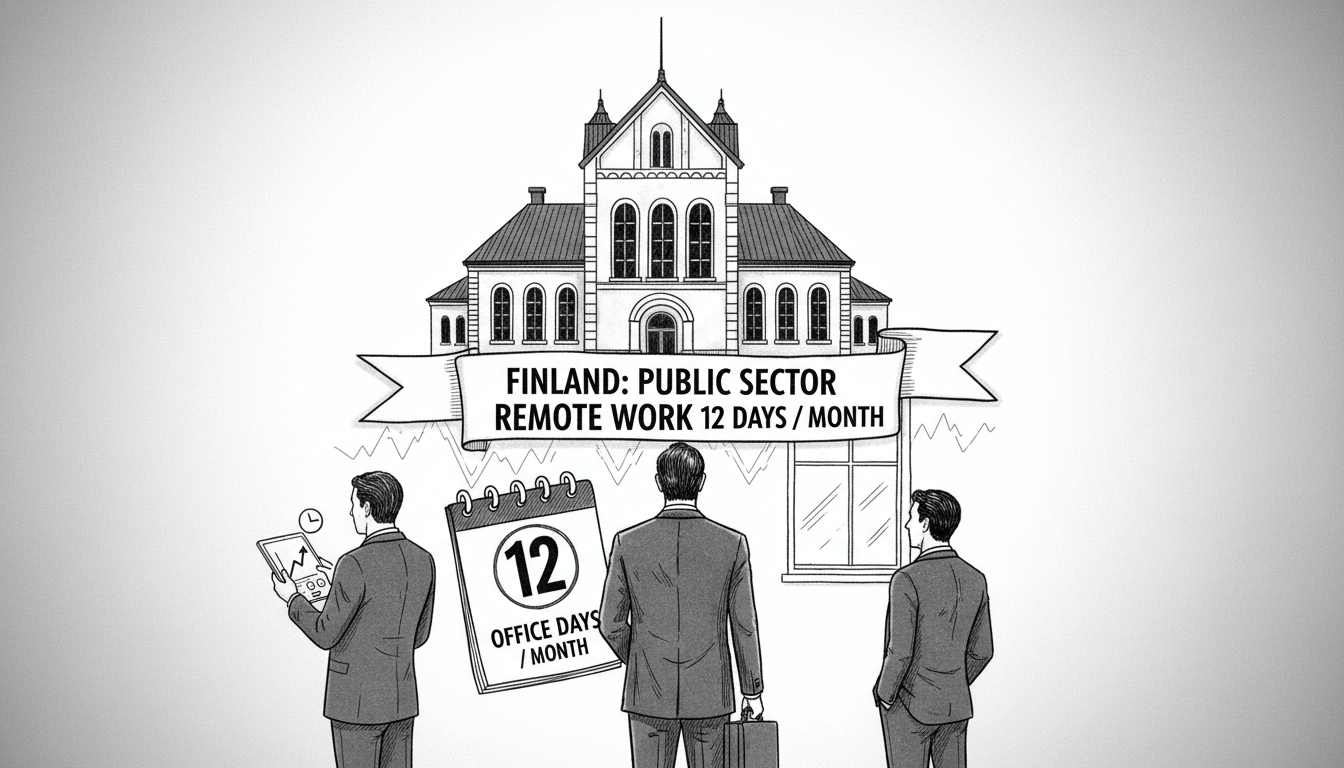Finland's state administration has issued stricter remote work recommendations for government employees. The new guidelines suggest workers should be present in offices approximately 12 days per month. This represents a significant shift from previous flexible arrangements that became common during the pandemic.
The Ministry of Finance announced these updated hybrid work recommendations to improve workplace community and well-being. Officials also aim to boost public sector productivity through increased in-person collaboration. Each government agency will implement these recommendations according to their specific operational needs.
This new policy contrasts sharply with guidelines at other Finnish institutions. The Social Insurance Institution Kela requires employees to work just one day per week or four days monthly in offices. Kela's remote work policy has already generated employee dissatisfaction since director Lasse Lehtonen introduced it earlier this year.
Government workers can still perform remote work for part of their day. During partial remote work days, commute time doesn't count as working hours. The guidelines allow for exceptions during special circumstances like pandemic situations.
Different government agencies will apply these rules differently based on their operational requirements. Security sector jobs often require physical presence due to their location-specific nature. Data protection and security concerns may also limit remote work possibilities in certain departments.
The state continues supporting work-life balance through existing collective agreements. These include part-time work arrangements and flexible scheduling options. The government emphasizes that remote work practices should apply consistently across entire organizations.
This policy shift reflects broader European trends as governments reconsider remote work arrangements. Many countries are balancing employee flexibility with concerns about workplace culture and collaboration. Finland's approach shows how public sector employers are establishing new norms for hybrid work environments.
What does this mean for Finland's reputation as a flexible work pioneer? The country has long championed work-life balance and digital innovation. These new guidelines suggest even progressive Nordic nations are recalibrating their remote work policies post-pandemic.
International observers will watch how Finnish public sector workers adapt to these changes. The implementation could influence similar decisions across Scandinavia and beyond. Other public and private sector organizations in Finland are reportedly preparing comparable hybrid work guidelines.
The true test will come as government agencies interpret these recommendations. Some departments might enforce stricter presence requirements while others maintain flexibility. Employee reactions and productivity metrics will ultimately determine the policy's success.

